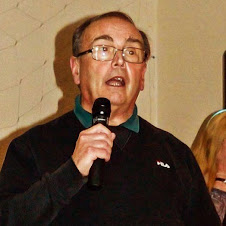About two weeks ago, someone I hadn't talked to in a long time told me that his son and daughter-in-law were on holiday in Iran. Slightly shocked, I said that I hoped they would both get back safely. Iran, as any human rights campaigner will tell you, is not the best place for British citizens (or anyone else) to visit. One glance at either the Human Rights Watch or Amnesty International reports on human rights in Iran is enough to show what life is like for those who fall foul of the regime. In fact, you can find yourself arrested in Iran for no apparent reason.
Nowhere is this unjust practice better illustrated than in the current predicament of Nazanin Zaghari-Ratcliffe. As Amnesty International says:
"Nazanin, a charity worker, was visiting family in Iran with her two-year-old daughter, Gabriella, in April this year. They were about to board a plane home to the UK when Nazanin was arrested. More than six months later, Nazanin is still in prison in Iran. In September, she was sentenced to five years behind bars after an unfair trial and the official charges against her remain a secret."
In a nasty little "extra", the Iranian authorities have confiscated her daughter's UK passport, effectively making two-year old Gabriella a hostage. Now, Iran has a history of holding westerners to ransom, going back to the storming of the US Embassy in Tehran back in 1979. Months of negotiation and compromise happened before the US Embassy staff, held captive, were released. It is thought that Nazanin's incarceration is happening for similar reasons, i.e. the regime wants something, and is holding her hostage to exert pressure on the British Government. As her British husband said: "Nazanin's detention and charges have always felt like she and Gabriella are being held as a political bargaining chip for internal and international politics," Mr Ratcliffe said.
"The fact that she was sentenced with unrecognisable charges the day after the UK embassy was upgraded makes this all the clearer."
This is not our concern here. What is of concern to me, human rights organisations and Nazanin's increasingly desperate family is the detrimental effect prison is having upon Nazanin's physical and mental health. She is being held in Iran's notorious Evin Prison, where, as the BBC says:
"Maziar Bahari, a journalist and former detainee at Evin Prison told the BBC it was an infamous jail with a history of executions and torture.
"Thousands of innocent lives perished in that prison and for someone like her who has not had any prison experience, being there will be a real torture," he said."
Nazanin has already been on hunger strike and is suffering terribly. For this reason, I appeal to all readers to support the campaign to keep her spirits up, and to continue to exert pressure on the Iranian authorities. Please, if you have not already done so, send a message to Nazanin via the Amnesty International page - CLICK ON THIS LINK. And - please - encourage others to do the same. Let's work to bring Nazanin and Gabriella home!
"The fact that she was sentenced with unrecognisable charges the day after the UK embassy was upgraded makes this all the clearer."
This is not our concern here. What is of concern to me, human rights organisations and Nazanin's increasingly desperate family is the detrimental effect prison is having upon Nazanin's physical and mental health. She is being held in Iran's notorious Evin Prison, where, as the BBC says:
"Maziar Bahari, a journalist and former detainee at Evin Prison told the BBC it was an infamous jail with a history of executions and torture.
"Thousands of innocent lives perished in that prison and for someone like her who has not had any prison experience, being there will be a real torture," he said."
Nazanin has already been on hunger strike and is suffering terribly. For this reason, I appeal to all readers to support the campaign to keep her spirits up, and to continue to exert pressure on the Iranian authorities. Please, if you have not already done so, send a message to Nazanin via the Amnesty International page - CLICK ON THIS LINK. And - please - encourage others to do the same. Let's work to bring Nazanin and Gabriella home!









